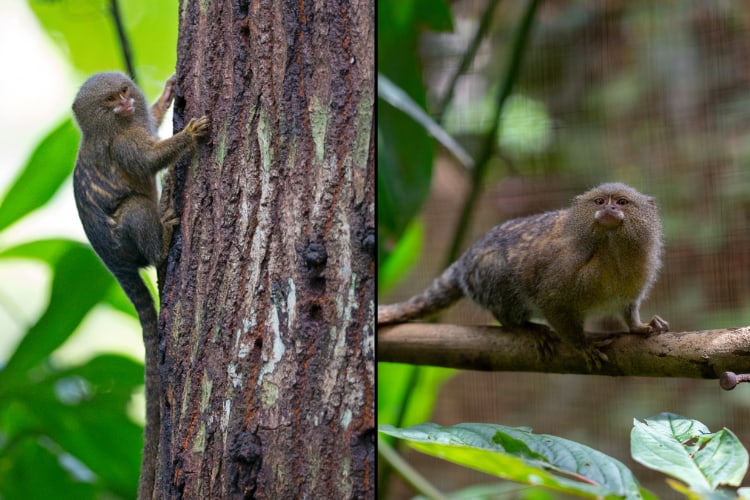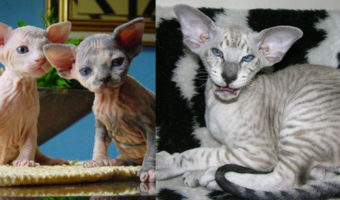Pygmy Marmoset, the Smallest Monkeys in the World, Weigh Less Than an Apple
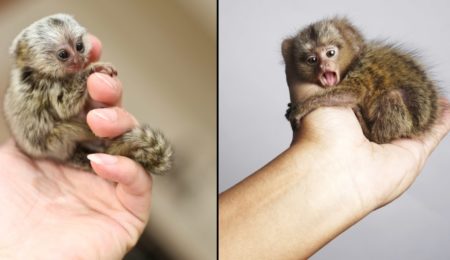
Pygmy marmosets, or “finger monkeys” as they are colloquially but aptly called, are the smallest species of monkeys in the world. Picture a monkey that weighs less than an apple and, on average, measures around five inches tall.
While the word “marmoset” comes from the old French word “marmoset,” which means “grotesque figurine; fool, jester.” In reality, their patterns of locomotion are more squirrel-like, for example, the ability to quadrupedally run up and down the trunks of a tree.
They are known for replicating quick and gravity-defying movements, vertically clinging to branches, expertly maneuvering through canopies, etc.
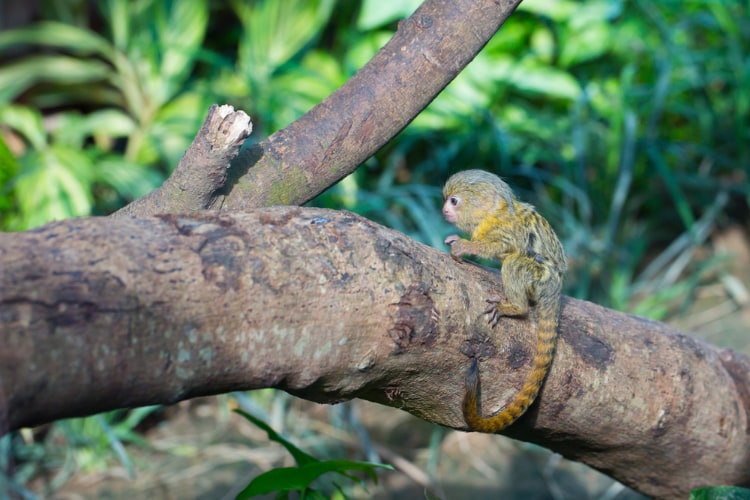
Professionals of primatology who’ve worked directly with the species report their average measurements as weighing a mere 119 grams and their average height at a diminutive 5.35 inches. What makes the species even more peculiar is that adult pygmy marmosets have tails that are even longer than their bodies.
Get to Know the World’s Smallest Primates
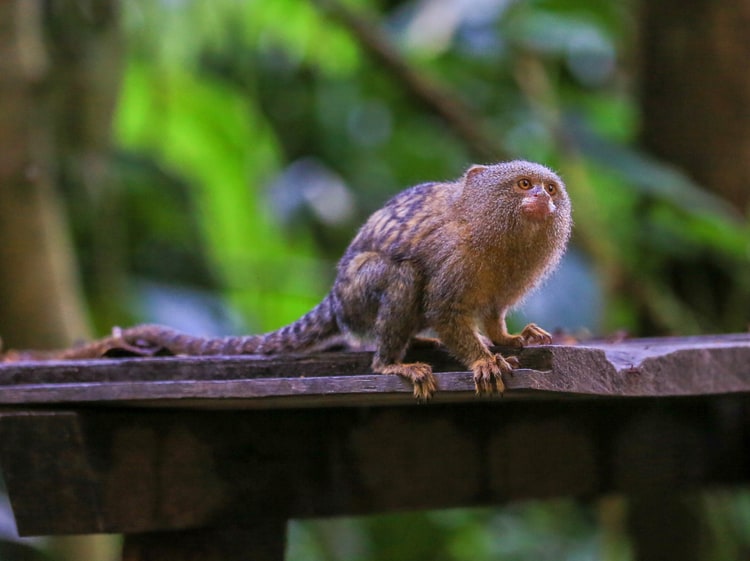
With an average weight of around 119 grams, pygmy marmosets are the smallest of the New World monkeys. However, their diminutive size is no reflection of their geographical distribution. A scientific paper looking at the different sub-species of pygmy marmosets mentions that Johann Baptist von Spix first described them in 1823, who described them in a locality near Tabatinga, Rio Solimoes, Brazil.
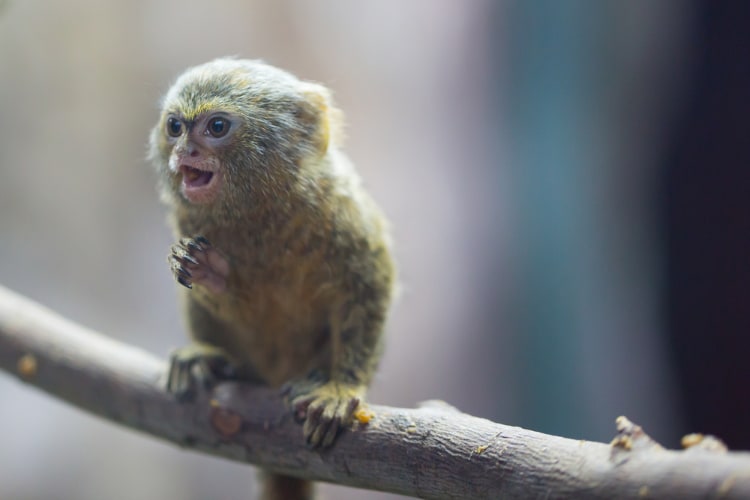
Nor is their extremely small size only associated with agile, small, abrupt movements, as some are known to leap more than 16 feet. Native to the Amazon basin and rainforests of South America, they are currently mostly found in Brazil, Columbia, Peru, northern Bolivia, and Ecuador. However, they can be found in zoos worldwide and are considered among the most coveted display animals.
Their Diet, Size, and Characteristics
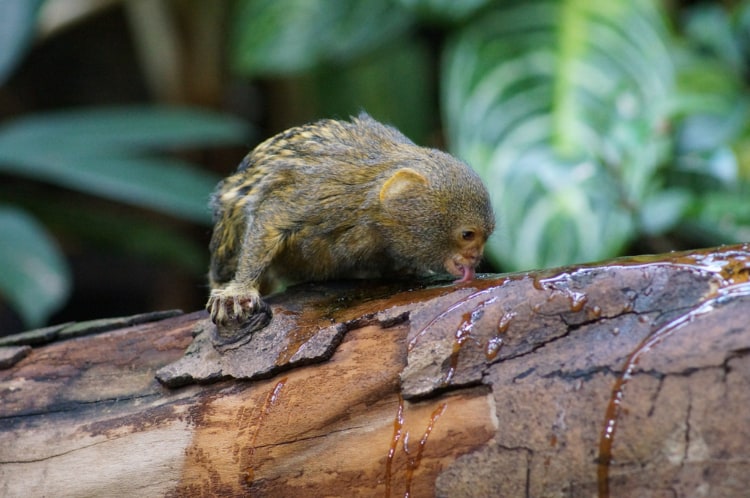
In addition to their size, their special dental adaptations have been the object of interest of many researchers. Pygmy monkeys gnaw holes in the bark of trees (sometimes as many as ten holes daily) and return to these fresh holes and older ones at different times to eat the gum the tree produces.
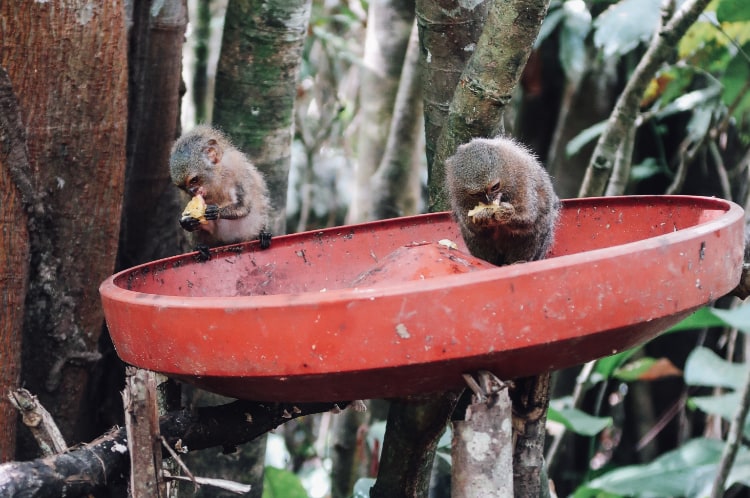
Being omnivores, they live on sap and gums of trees, vines, insects, arachnids (they love grasshoppers), spiders, flower nectar, and fruit, among other things. And what helps them collect these food items? Apart from dental adaptations and sharp incisors, it is claw-like nails, too, that help them gather food.
According to one research study looking at the ecology and population dynamics of the pygmy marmoset, over a span of roughly two years, their infant survival rate was somewhere around 67%.
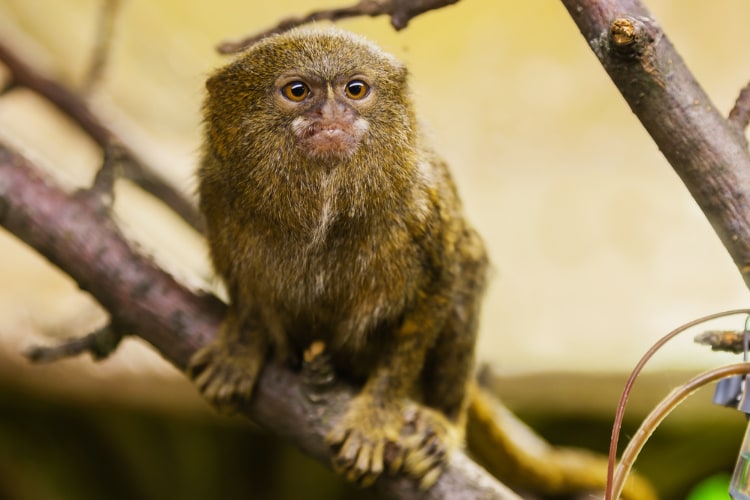
Because of their exceptionally small body size, they remain an easy target of predators, such as raptors, small felids, and also climbing snakes.
There are huge dissimilarities in numbers specifying the average lifespan of pygmy monkeys, as they range anywhere between nine to 12 years. The figures also depend on whether they stay in the wild or have been held in captivity.
How Different Are Pygmy Monkeys From Ordinary Breeds?
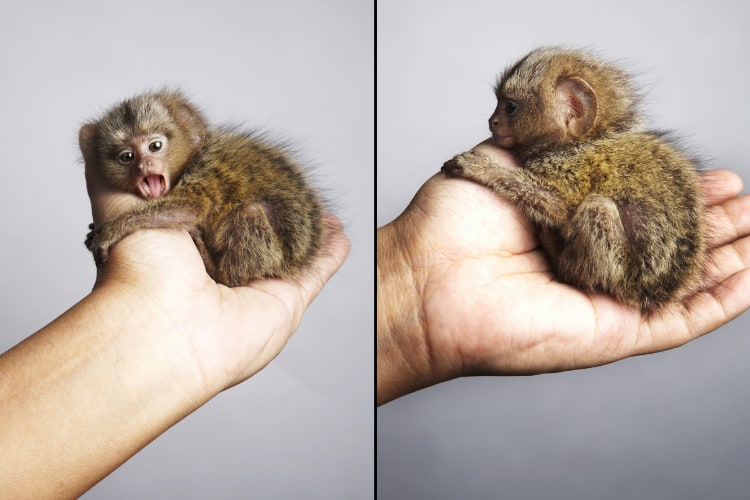
The ordinary or regular monkeys that humankind has always known have been an integral part of showbiz, pop culture, and celluloid. One of the first few forms of entertainment, the circus, is incomplete without a few antics of these primates.

But how do pygmy monkeys compare and fare? Can they be kept as pets? According to a study from the University of Sterling, marmoset monkeys are highly unsuitable as pets for several reasons. As essentially wild animals, their complex natural habitats cannot be accurately recreated in a domestic setting.
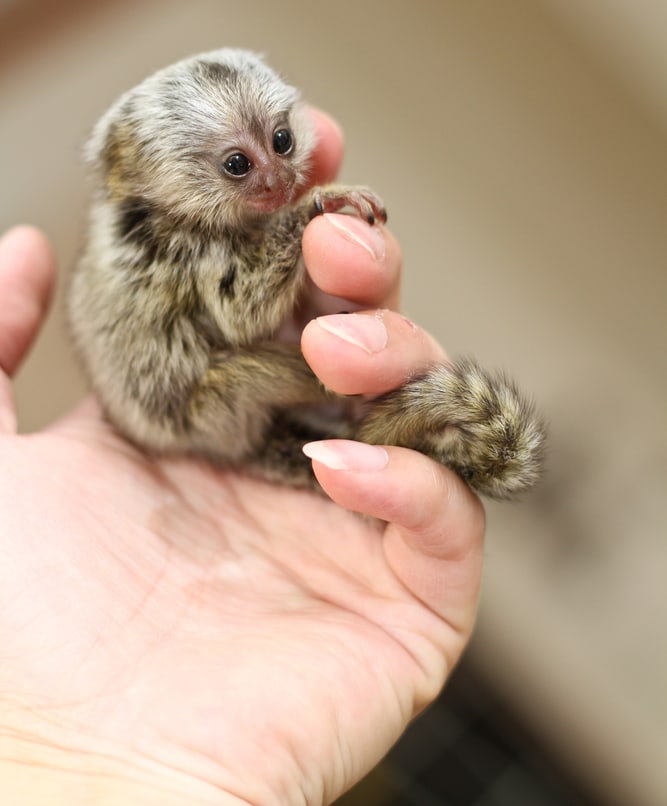
Marmosets have a strong musky scent, used to mark their territory, which many people find difficult to tolerate. Additionally, these highly intelligent and active creatures quickly become bored in a home environment, often leading to destructive behavior. The debate over whether marmosets should be kept as pets continues in numerous zoo journals and animal welfare publications.
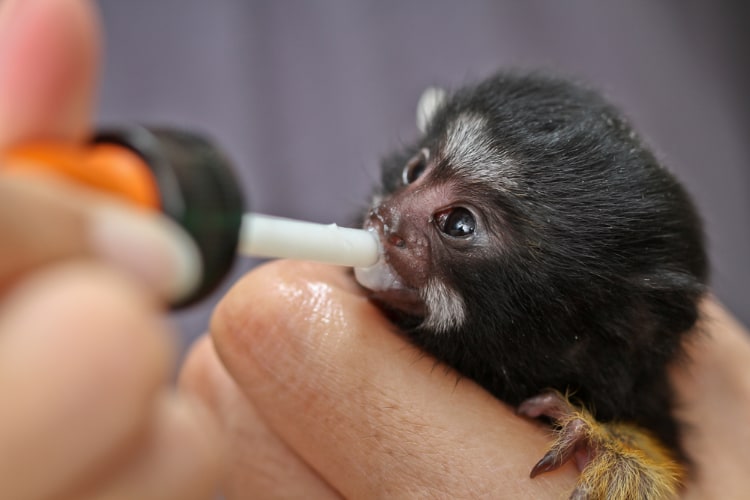
The pygmy marmosets, as a species, are listed as vulnerable on the IUCN Red List of Threatened Species. They face threats from habitat loss in some areas of their range and from the pet trade in others, such as Ecuador.














